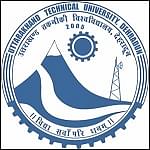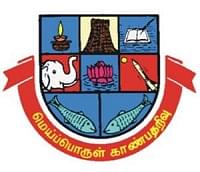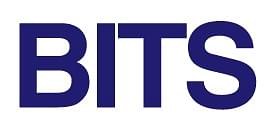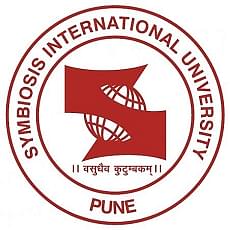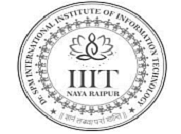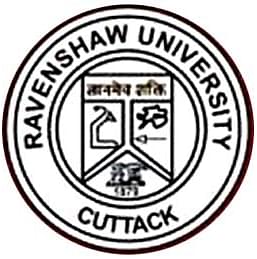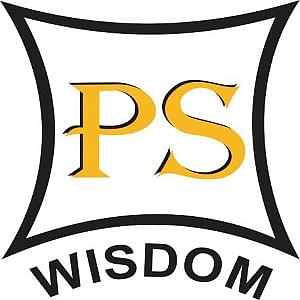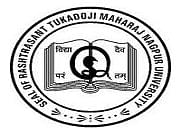Introduction about M.com
Master of Commerce (M.Com) from the top best college in India is
a postgraduate academic degree program that focuses on various aspects of
commerce, economics, accounting, finance, and management. It is designed to
provide students with advanced knowledge and skills in the field of commerce
and related areas, preparing them for careers in both the corporate and
academic sectors.
The M.Com program typically offers specialized courses in areas such as
financial accounting, managerial accounting, economics, business management,
marketing, taxation, auditing, and corporate law, among others. Students may
have the opportunity to delve deeper into specific areas of interest through
elective courses or concentrations.
The curriculum of an M.Com program often incorporates theoretical
knowledge along with practical applications, case studies, and research
projects. Students are encouraged to develop critical thinking, analytical
skills, and a thorough understanding of complex financial and business
concepts.
Many universities and colleges offer M.Com programs, both on-campus and
through distance education, making it accessible to a wide range of students,
including working professionals looking to enhance their skills or change
career paths.
Upon completion of an M.Com degree, graduates have various career
opportunities available to them, including roles in accounting firms, financial
institutions, multinational corporations, government agencies, academic
institutions, and consulting firms. Some may also choose to pursue further
education, such as a Ph.D., for careers in research and academia.
What is eligibility for admission at M.com ?
The eligibility criteria for admission at the top M.Com college program can vary depending on the institution
and country. However, some common eligibility requirements typically include:
o Bachelor's
Degree: Applicants are generally required to have a bachelor's degree in
commerce, business administration, economics, accounting, finance, or a related
field from a recognized university or institution.
o Minimum
Percentage: Many institutions have a minimum percentage requirement in the
undergraduate degree program, often ranging from 50% to 60% or higher,
depending on the institution and program competitiveness.
o Entrance
Exams: Some universities or colleges may require candidates to clear entrance
exams specific to the M.Com program. These exams may assess a candidate's
aptitude in areas such as quantitative skills, logical reasoning, English
language proficiency, and subject-specific knowledge.
o Work
Experience (optional): Some institutions may prefer or require candidates to
have prior work experience, particularly for executive or part-time M.Com
programs. This requirement is more common in programs designed for working
professionals.
o Language
Proficiency: For international applicants or in countries where the medium of
instruction is not the applicant's native language, proof of proficiency in the
language of instruction (such as English) may be required. This can be
demonstrated through standardized tests like the TOEFL (Test of English as a
Foreign Language) or IELTS (International English Language Testing System).
Other Requirements: Depending on the institution, there may be
additional requirements such as letters of recommendation, statement of
purpose, personal interviews, or submission of a portfolio of work.
It's essential for prospective students to carefully review the specific
eligibility criteria and admission requirements of each institution and program
they are interested in applying to, as these can vary significantly.
Additionally, meeting the minimum eligibility criteria does not guarantee
admission, as selection may also be based on factors such as academic
performance, entrance exam scores, and available seats.
What is admission process for M.com ?
The admission process for an M.Com at the top affordable college program
typically involves several steps, which may vary slightly depending on the
institution and country. Here is a general overview of the typical admission
process:
v Research
and Selection of Institutions: Prospective students research universities or
colleges offering M.Com programs that align with their academic interests,
career goals, location preferences, and other criteria. They review admission
requirements, program details, faculty profiles, and facilities to make
informed decisions.
v Application
Submission: Once prospective students have identified the institutions they
wish to apply to, they submit their applications according to the specified
deadlines. Applications typically include personal information, educational
background, academic transcripts, standardized test scores (if required),
letters of recommendation, statement of purpose, and any other documents
requested by the institution.
v Entrance
Exams (if required): Some institutions may require applicants to clear entrance
exams specific to the M.Com program. These exams may assess aptitude in areas
such as quantitative skills, logical reasoning, English language proficiency,
and subject-specific knowledge. Applicants prepare for and take these exams
according to the institution's guidelines.
v Application
Review: After receiving applications, the admissions committee or department
reviews them to assess each candidate's qualifications, academic background,
test scores, letters of recommendation, and other relevant factors. The
committee evaluates candidates based on predetermined criteria and selects
applicants who meet the eligibility requirements and demonstrate potential for
success in the program.
v Interview
(if required): In some cases, institutions may require shortlisted candidates
to participate in interviews as part of the admission process. Interviews may
be conducted in-person, over the phone, or via video conferencing. During the
interview, candidates may be asked about their academic background, career
goals, motivation for pursuing the program, and other relevant topics.
v Admission
Decision: After completing the review process, the admissions committee makes
final admission decisions and notifies applicants of their admission status.
Accepted candidates receive admission offer letters outlining the terms and
conditions of their admission, including enrollment deadlines, tuition fees,
and other important information. Rejected candidates may receive notifications
explaining the reasons for their denial.
v Enrollment
and Registration: Accepted candidates who decide to enroll in the M.Com program
complete the enrollment process by submitting required documents, paying
tuition fees, and fulfilling any other enrollment requirements specified by the
institution. Once enrolled, students register for courses and begin their
academic journey in the M.Com program.
v It's
important for prospective students to carefully follow the application
instructions and deadlines provided by each institution and to submit all
required documents accurately and on time to maximize their chances of
admission. Additionally, staying informed about updates or changes to the
admission process is crucial throughout the application cycle.
What are scopes after M.com?
Completing an M.Com degree from the best university opens up a wide range of career opportunities
across various sectors. Here are some common career paths and scopes available
to M.Com graduates:
o Accounting and
Finance: M.Com graduates can pursue careers in accounting firms, financial
institutions, and corporate finance departments. They may work as accountants,
auditors, financial analysts, tax consultants, financial planners, or
investment bankers.
o Management: M.Com
graduates often possess strong analytical and managerial skills, making them
well-suited for roles in business management. They can work as management
consultants, business analysts, project managers, operations managers, or human
resource managers.
o Banking and
Insurance: M.Com graduates can find opportunities in the banking and insurance
sectors, working in areas such as retail banking, corporate banking, investment
banking, insurance underwriting, risk management, and financial advisory
services.
o Teaching and
Academia: Some M.Com graduates choose to pursue careers in teaching and
academia. They can work as professors, lecturers, or researchers in
universities, colleges, and research institutions, sharing their knowledge and
expertise with students and contributing to academic research in the field of
commerce and related areas.
o Government Jobs: M.Com
graduates are eligible for various government job opportunities, particularly
in departments related to finance, commerce, taxation, and economic planning.
They can work in roles such as tax officers, financial analysts, economic
advisors, or civil servants.
o Entrepreneurship: M.Com
graduates with entrepreneurial aspirations can start their own businesses or
ventures in sectors such as retail, e-commerce, consulting, finance,
accounting, or financial services. Their advanced knowledge of commerce and
business concepts can help them succeed as entrepreneurs.
o Professional
Certifications: M.Com graduates can enhance their career prospects by obtaining
professional certifications in areas such as accounting (e.g., Chartered
Accountant, Certified Management Accountant), finance (e.g., Chartered
Financial Analyst, Financial Risk Manager), taxation, or management (e.g.,
Project Management Professional). These certifications demonstrate specialized
expertise and can lead to advanced career opportunities and higher salaries.
o Further Education: Some
M.Com graduates choose to pursue further education, such as a Ph.D. in
Commerce, Economics, Finance, or related fields. A doctoral degree can open up
opportunities for careers in research, academia, and policy-making roles.
Overall, the scope after M.Com is vast and diverse, offering graduates
the flexibility to pursue careers in various industries and sectors based on
their interests, skills, and career goals. Continuous learning, skill
development, and staying updated with industry trends are essential for
long-term success in any chosen career path.
What is syllabus for M.com?
The syllabus for an M.Com (Master of Commerce) program can vary
depending on the institution offering the program and any specific
concentrations or electives it may offer. However, here's a general overview of
the typical subjects and topics covered in an M.Com syllabus:
v Core Courses:
v Financial
Accounting
v Managerial
Accounting
v Business
Economics
v Managerial
Economics
v Corporate
Finance
v Financial
Management
v Marketing
Management
v Human
Resource Management
v Organizational
Behavior
v Business
Statistics
v Quantitative
Techniques for Management
v Business
Law and Corporate Law
v International
Business
v Entrepreneurship
Development
v Specialized Courses: Depending
on the institution and program, students may have the option to choose
specialized courses in areas such as:
v Advanced
Financial Accounting
v Cost
Accounting
v Advanced
Corporate Finance
v Investment
Analysis and Portfolio Management
v Taxation
(Direct and Indirect)
v Auditing
and Assurance Services
v Financial
Markets and Institutions
v Strategic
Management
v Supply
Chain Management
v Consumer
Behavior
v Brand
Management
v Risk
Management
v Project
Management
v Econometrics
v Environmental
Economics
v Social
Entrepreneurship
v Research
Methodology:
v Research
Methodology and Techniques
v Quantitative
Research Methods
v Qualitative
Research Methods
v Data
Analysis and Interpretation
v Research
Project/Dissertation
v Electives: Some
M.Com programs offer elective courses that allow students to further specialize
in specific areas of interest. Elective courses may include topics such as:
v Financial
Modeling
v Derivatives
and Risk Management
v Corporate
Governance
v Mergers
and Acquisitions
v Financial
Statement Analysis
v Digital
Marketing
v International
Finance
v Leadership
and Change Management
v Microfinance
and Development
v E-commerce
and Internet Marketing
v Practical
Training/Internship (optional): Some M.Com programs may include a
practical training or internship component, where students gain hands-on
experience in a corporate or organizational setting. This provides valuable
real-world exposure and enhances students' practical skills and industry
knowledge.





